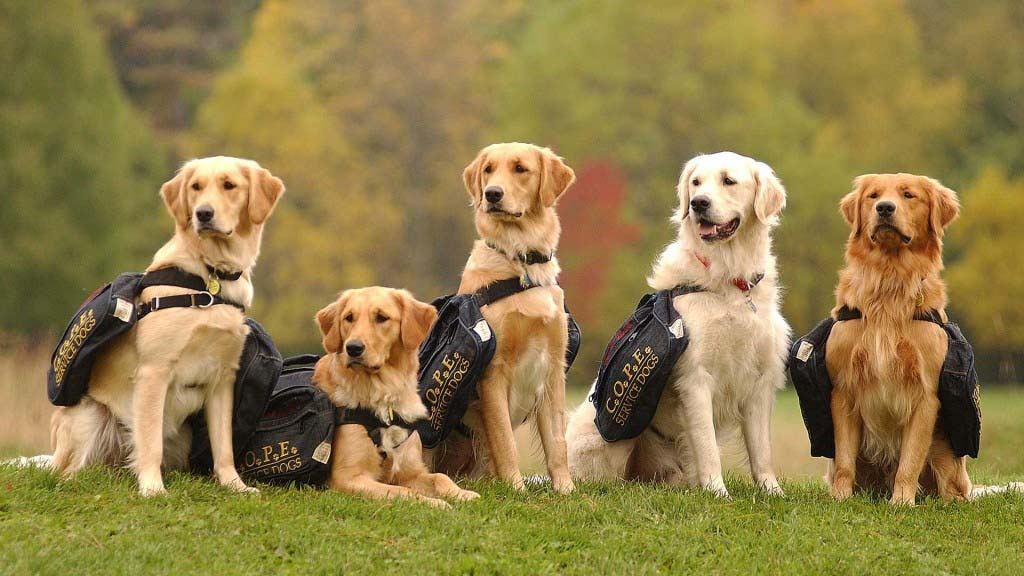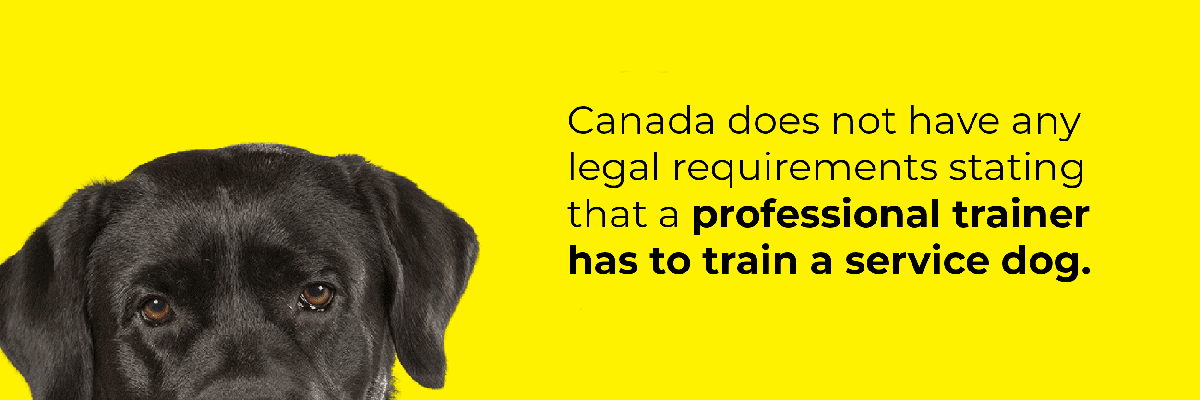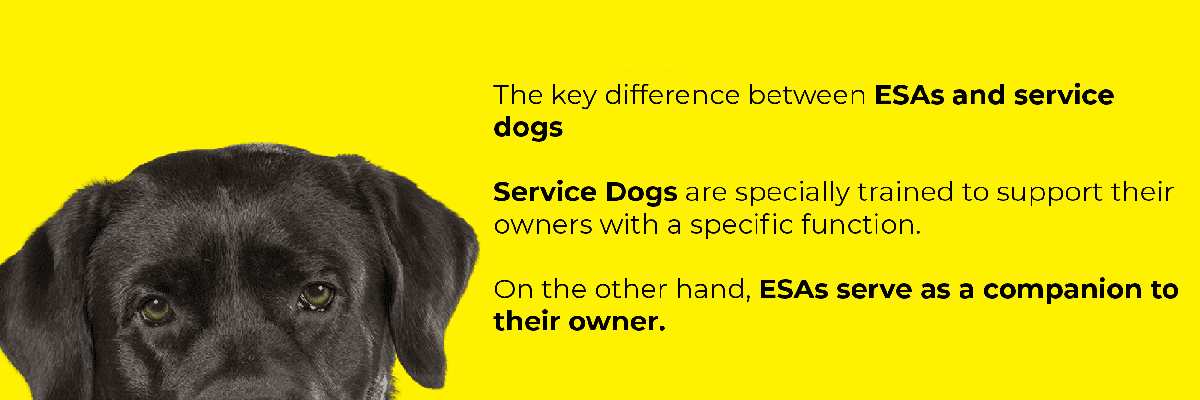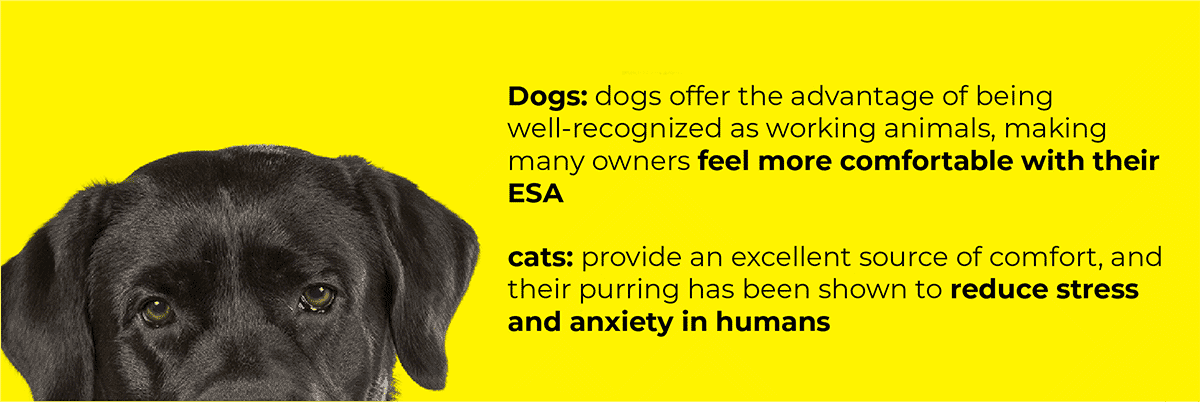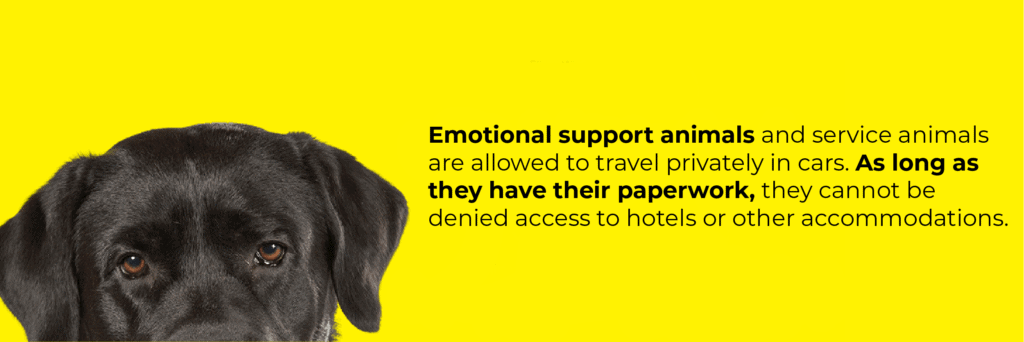Emotional support animals and service dogs are an essential part of life for many people. They're more than simple companions; they're helpers who make completing daily tasks possible.
While both ESAs and service dogs are working animals, they each function a little differently. That's because they're trained for different purposes and support their owners in different ways.
If you feel that you might benefit from an emotional support animal or from a service dog, there are several things that you should know first. That way you can choose the companion that will work best for your needs.
Our team is here to break down everything you need to know about emotional support animals and service dogs in Canada. Let's take a look at what you need to know about getting an ESA or service dog in Canada.
How Do You Qualify for a Service Dog in Canada?
While getting a service dog in Canada can be hugely beneficial to some people, it's not an easy process. That's because Canada has no national laws or standards surrounding service animals.
To get started qualifying for a service dog, you'll need to speak with your doctor. Your doctor will assess whether or not you need the assistance of a service dog to help you with a personal medical issue.
As part of the doctor's letter, you will need to state whether you frequently have to fly or travel with your dog. It will also outline any required vaccinations or qualifications your dog will need to assist with your particular illness.
Once you have your doctor's note, you'll need to identify a service dog organization. Typically you can find both non-profit service dog organizations as well as for-profit organizations.
Non-profit organizations are often the first choice for obtaining a service dog. However, they typically have long waiting lists. In some cases, it can take over two years for you to be paired with a service dog.
The benefit of working with a for-profit organization is that you are able to get faster access to a service dog. However, they also come with hefty fees which can make it impractical for some individuals to take this route.
Can I Train My Own Service Dog in Canada?
Unlike many other countries, Canada does not have any legal requirements stating that a professional trainer has to train a service dog. That means that a person with a disability can actually train their service dog themselves.
The only requirement that must be met in order for the service dog to be given a service vest and counted as a service animal is that it must be trained to help its owner.
As long as your dog has been properly trained to assist you with your disability, businesses, landlords, and airlines must grant you public access. Your doctor's note will protect you and your dog and ensure your rights.
Some people choose to use the help of professional trainers or organizations to ensure their dog can help them in an emergency. However, if you feel confident in your dog training abilities, you are welcome to take on the task yourself.
How Do Service Dogs Help Their Owners?
When it comes to service dogs there's no end to the ways that these animals can help their owners. That's because dogs are highly intelligent and can be trained to assist in a variety of emergency situations.
A few common reasons why people may need to use a service dog include:
- To detect life-threatening allergies such as nuts, shellfish, or other common ingredients in food
- To assist with people who suffer from severe autism
- To alert people with diabetes to hyperglycemia or hypoglycemia
- To guide individuals who are vision-impaired
- To assist people with hearing impairment
- To people who have reduced mobility due to a stroke or other severe injuries or diseases
- To assist people with severe psychiatric diseases such as anxiety, depression, or PTSD
- To alert people who suffer from seizures to ongoing attacks
In each of these situations, dogs are trained to not only help their owners complete daily tasks but to alert others to an emergency. If something happens to their owners, they know how to protect and rescue their owners.
These dogs are extremely important to the well-being of their owners. In fact, there are many cases of service dogs saving their owner's lives.
What Is the Difference Between a Service Dog and an Emotional Support Animal?
Now that we've discussed service dogs, let's shift gears and get a better understanding of emotional support animals. While emotional support animals also help their owners in their daily life, ESAs are not the same as service dogs.
The key difference between ESAs and service dogs is that service dogs are specially trained to support their owners with a specific function. On the other hand, ESAs serve as a companion to their owner.
While service dogs can still provide the comfort and companionship of an ESA, their training means that they can complete tasks that an emotional support animal can't.
Understanding the difference is important because it can affect the rights of you and your dog. It will also affect how they can help you with your disability.
What Animals Can Be Considered an ESA?
One major difference between service dogs and emotional support animals is that ESAs do not have to be dogs. In fact, they can be any animal that provides a source of comfort to their owner!
Emotional support animals can also be any age. As long as an animal is fully domesticated it is able to be considered as an ESA. A few common animals include:
- Dogs: dogs offer the advantage of being well-recognized as working animals, making many owners feel more comfortable with their ESA
- Cats: cats provide an excellent source of comfort, and their purring has been shown to reduce stress and anxiety in humans
- Ferrets: ferrets are smaller pets but enjoy going for walks and being in public the way dogs do
- Snakes: snakes' quiet and calm nature can help lower stress and provide comfort to their owners
- Rabbits: rabbits are easy to train and are gentle, making them a great option for people with emotional disorders
While these are only a few of the types of emotional support animals, each one offers its owner unique benefits and sources of comfort and companionship.
Travelling With a Service Animal or Emotional Support Animal
Travelling is an important part of life for many people. If you have a service or emotional support animal, it's important to know about Canadian laws surrounding travel.
Emotional support animals and service animals are allowed to travel privately in cars. As long as they have their paperwork, they cannot be denied access to hotels or other accommodations.
For trains, buses, planes, and other modes of transportation service dogs and ESAs are permitted to travel but you will need to bring a few pieces of information with you.
To travel with your ESA or your service dog you will need:
- Your assistance animal's identification dog
- Written documentation as to the animal's training and capabilities
- Tags for the animal that state its name and service function
- A service harness
- A letter from a licensed doctor or mental health professional stating that your service animal or ESA is needed for travel
It's important to note that while these laws apply in Canada if you plan to travel outside of the country you will need to check the laws of your destination.
Bringing required documentation to the destination country will help ensure that your service dog or ESA's rights are protected during your trip.
What Is the Cost of a Service Dog and an Emotional Support Animal?
Getting an emotional support animal or a service dog has certain costs associated with it. Before applying for one, it's important to make sure that you understand these costs.
Service dogs in Canada have varying costs depending on whether they are provided by a nonprofit or a for-profit organization.
In a non-profit organization, the service dog is provided to the client free of charge. In a for-profit organization, clients can be expected to pay between $25,000 and $35,000.
Emotional support animals, on the other hand, will only cost as much as the harness and the cost of your medical visit to obtain your ESA letter. This is because they do not need any certification to be deemed an ESA.
Most health insurance policies will not cover ESAs and service dogs. However, they can be used to offset medical visit costs needed to obtain your doctor's letter and documentation.
The Bottom Line on ESAs and Service Dogs
If you're looking to get an ESA or service dog in Canada, understanding these rules and regulations can help ensure you get the support you need. It can also help prepare you for what to expect with your new companion.
If you're looking to get an ESA or service animal and don't currently have insurance for you or your companion, Insurdinary can help. If you need help covering medical costs associated with attaining a service animal or ESA letter we're here for you too.
Reach out to our team and we'll get you set up with a quote for insurance that makes getting your service or emotional support animal possible. Working with a reputable insurance agency such as Insurdinary can help you ensure yourself and your pet during any disability-related medical visits.

